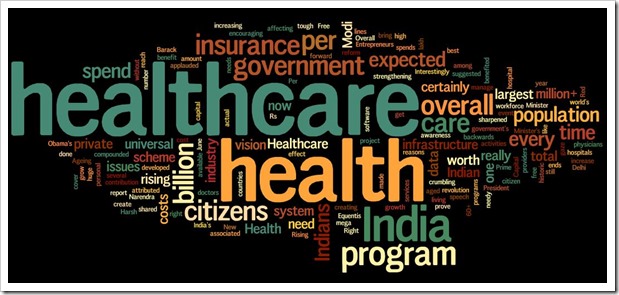Can Modi Bring In A Revolution In Indian Healthcare Industry?
In the historic speech made by Narendra Modi on August 15th from Red Fort in New Delhi, he suggested several beneficial plans and programs of the government. One among them has been appreciated and applauded the most: Free health insurance worth Rs 1 lakh for all economically backwards citizens. With 18 crore Indians living below the poverty line, this mega health scheme can bring in a healthcare revolution in India.

This is the not the first time that PM Modi has emphasized on empowering and strengthening our healthcare system. In the month of June, he had shared his vision of creating a universal healthcare program, just like in the USA. This had been hailed as the world’s largest healthcare program.
Health Minister Harsh Vardhan had said during one event, “The blueprint of the world’s largest universal health insurance programme is in the process of being sharpened under the Prime Minister’s personal gaze. It is partially inspired by US President Barack Obama’s grand insurance-for-all project, which is popularly known as ‘Obamacare‘”.
But is it worth it? Does India really need a healthcare program on the lines of the developed countries where all their citizens get almost free health cover? Yes, we do believe so. Here are 3 reasons which prove that this is the right time for the healthcare:
India’s Ageing Population:
Right now, there are 100 million+ Indians who are aged 60+, and by the time 2050 ends, India will have 300 million+ above 60 citizens as the total population will increase to 1.6 billion. Such a huge population will certainly need healthcare infrastructure, and without a state-sponsored program, it will be really tough to manage.
Healthcare Market Is Growing
As per a report by Equentis Capital, the total healthcare industry in India in 2012 was $78.6 billion, which is expected to grow to $158.2 billion in 2017. Per capital spend on healthcare (amount which every citizen spends on health issues) was $43.1 in 2008, which increased to $57.9 in 2011 and is expected to reach $88.7 by 2015 end. Clearly inflation and rising costs is directly affecting the per capita spend on healthcare. Rising awareness of health issues can also be attributed to this rising cost of healthcare.
Interestingly, health care providers in India are expected to spend $1.08 billion on IT services and software in 2014, which is increasing at a compounded rate of 4% every year. IT Entrepreneurs in health care sector will love this data.
Crumbling Healthcare Infrastructure:
Meanwhile, despite high costs associated and encouraging growth of health care, there are only 0.9 hospital beds for every 1000 patients in India. And even more dismal is the number of doctors: only 0.7 physicians are currently available for per 1000 population in India. 71% of the overall healthcare activities are still done in private hospitals, and the government’s contribution to the overall healthcare system is only 30%. Health insurance is being availed by only 15% of overall ‘skilled’ workforce. Overall, less than 20% of Indian citizens have access to any kind of health insurance (government or private; as per 2010 data)
A health program for all Indians sponsored by the Indian government will not only benefit the poor and the needy, but in addition, it can create a ripple effect wherein the overall industry gets benefited. Our growing health care needs is not being supported by the crumbling infrastructure, and this vision of the present government to reform healthcare is certainly one of the best decisions. We all are now looking forward to ‘actual’ implementation of the scheme.

There is a broken link in the phrase ” With 18 crore Indians living below the poverty line “
Thanks for pointing it out. We have rectified the problem..